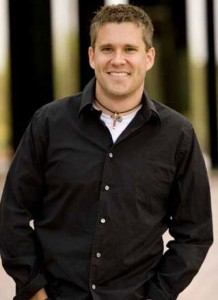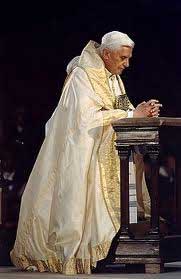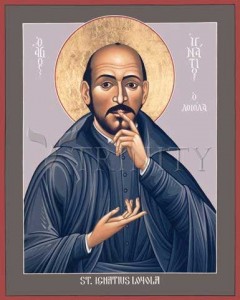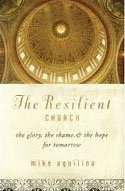Msgr. Esseff asks the question, “Are you prepared for the Lord’s coming?” Â He challenges us to take a good look at our prayer lives and to prepare for the coming of Jesus in your life today.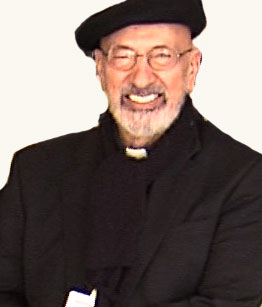
[powerpress]
Gospel MK 13:33-37
“Be watchful! Be alert!
You do not know when the time will come.
It is like a man traveling abroad.
He leaves home and places his servants in charge,
each with his own work,
and orders the gatekeeper to be on the watch.
Watch, therefore;
you do not know when the Lord of the house is coming,
whether in the evening, or at midnight,
or at cockcrow, or in the morning.
May he not come suddenly and find you sleeping.
What I say to you, I say to all: ‘Watch!’â€
Msgr. John A. Esseff is a Roman Catholic priest in the Diocese of Scranton. He was ordained on May 30th 1953, by the late Bishop William J. Hafey, D.D. at St. Peter’s Cathedral in Scranton, PA. Msgr. Esseff served a retreat director and confessor to Blessed Mother Teresa.   He continues to offer direction and retreats for the sisters of the missionaries of charity around the world. Msgr. Esseff encountered St.  Padre Pio,  who would become a spiritual father to him. He has lived in areas around the world,  serving  in the Pontifical missions, a Catholic organization established by Bl. Pope John Paul II to bring the Good News to the world especially to the poor. Msgr. Esseff assisted the founders of the Institute for Priestly Formation and continues to serve as a spiritual director for the Institute. He continues to  serve as a retreat leader and director to bishops, priests and sisters and seminarians and other religious leaders around the world.  Â
To obtain a copy of Msgr. Esseff’s book byvisiting here
Be sure to visit Msgr. Esseff’s website “Building a Kingdom of  Love”
This entry was posted on Sunday, November 30th, 2014 at 10:05 am
You can follow any responses to this entry through the RSS 2.0 feed.
The Sunday, Sunday, Sunday Podcast is a reflection on the upcoming Sunday Mass readings presented by LifeTeen.com and hosted by Mark Hart.
Sunday Readings from the USCCB
Reading 1 Â IS 63:16B-17, 19B; 64:2-7
Responsorial Psalm  PS 80:2-3, 15-16, 18-19
Reading 2 Â 1 COR 1:3-9
Gospel  MK 13:33-37
Jesus said to his disciples:
“Be watchful! Be alert!
You do not know when the time will come.
It is like a man traveling abroad.
He leaves home and places his servants in charge,
each with his own work,
and orders the gatekeeper to be on the watch.
Watch, therefore;
you do not know when the Lord of the house is coming,
whether in the evening, or at midnight,
or at cockcrow, or in the morning.
May he not come suddenly and find you sleeping.
What I say to you, I say to all: ‘Watch!’â€
Lectionary for Mass for Use in the Dioceses of the United States, second typical edition, Copyright © 2001, 1998, 1997, 1986, 1970 Confraternity of Christian Doctrine;
Tags: Advent Cycle B, gospel of mark, lifeteen
This entry was posted on Sunday, November 30th, 2014 at 9:20 am
You can follow any responses to this entry through the RSS 2.0 feed.
Episode 32- The Holy Rule of St. Benedict: A Spiritual Path for Today’s World with Fr. Mauritius Wilde O.S.B., 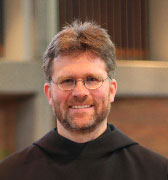 PhD.
PhD.
“The Life of St. Benedict pt 5”
We continue our conversation on the life of St. Benedict by using the biography penned by St. Gregory the Great. This episode St. Benedict where he becomes free through detachment and becomes a light to others.  The moment in St. Benedict’s life is a great paradox.  The one who outwardly looks like the beast, inwardly reveals the saint.
[powerpress]
From the Life of Our Most Holy Father St. Benedict by St. Gregory the Great:
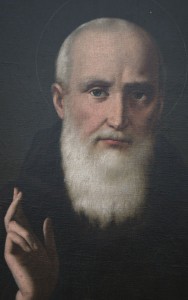
 CHAPTER I.
About the same time certain shepherds found him hid in a cave; who, at the first, spying him among the bushes, clothed in the skins of beasts, took him for some wild beast, but afterwards knowing him to be a servant of God, many of them were converted from their savage life to virtue. By this means his name began to be famous in the country, and many did resort unto him, bringing with them necessaries for his body, while they received from his lips the food of life.
 For more information about the ministry of the the Missionary Benedictines of Christ the King Priory in Schuyler, Nebraska visit here:
For more information about the ministry of the the Missionary Benedictines of Christ the King Priory in Schuyler, Nebraska visit here:
This entry was posted on Wednesday, November 26th, 2014 at 2:38 pm
You can follow any responses to this entry through the RSS 2.0 feed.
Episode 4- The School of Prayer: Reflections on the teachings of Pope Benedict XVI –  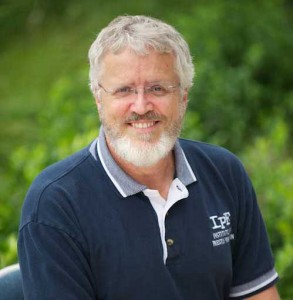 Jacob wrestling with Angel.  The mystery of the name.  We have to let God ask us who we are or will you resist and remain isolated?  Our prayer is only going to be fruitful if we surrender ourselves to the question…who are you?  Like  Jacob, once we give over our name then God can begin to transfigure that name, or in other words, our persons to be more inline with His will, His love, His power.  Eventually, in prayer, we have to enter into the struggle…what is really going on in our souls, in our hearts and are our wrestling with God’s love.   We yield our identity to God’s love.
Jacob wrestling with Angel.  The mystery of the name.  We have to let God ask us who we are or will you resist and remain isolated?  Our prayer is only going to be fruitful if we surrender ourselves to the question…who are you?  Like  Jacob, once we give over our name then God can begin to transfigure that name, or in other words, our persons to be more inline with His will, His love, His power.  Eventually, in prayer, we have to enter into the struggle…what is really going on in our souls, in our hearts and are our wrestling with God’s love.   We yield our identity to God’s love.
The wounding of Jacob by the Angel. Â It is the symbol of the wound, the opening of the self, which symbolizes an entryway to vulnerability…God is deeply affecting us. Â God’s love, concern, and fascination with us is how He enters into our being and “wounds” us. Â If we could “be still” and allow Him to love us, He becomes victorious within us.
The name we yield to God is our heart…the core of our being.  At Baptism, we give over our name, so we give the power over to God over us.  How the “wrestling occurs” and if we stay in it long enough God “wounds” us, into His hands we commend our “spirits”.  How does Jesus transform even this event?
[powerpress]
Deacon James Keating, PhD, the director of Theological Formation for the Institute for Priestly Formation, located at Creighton University, in Omaha.
From  Pope Benedict’s 4 audience on prayer:
Dear brothers and sisters, our entire lives are like this long night of struggle and prayer, spent in desiring and asking for God’s blessing, which cannot be grabbed or won through our own strength but must be received with humility from him as a gratuitous gift that ultimately allows us to recognize the Lord’s face. And when this happens, our entire reality changes; we receive a new name and God’s blessing. And, what is more: Jacob, who receives a new name, and becomes Israel, also gives a new name to the place where he wrestled with God, where he prayed; he renames it Penuel, which means: “The Face of Godâ€. With this name he recognizes that this place is filled with the Lord’s presence, making that land sacred and thus leaving a memorial of that mysterious encounter with God. Whoever allows himself to be blessed by God, who abandons himself to God, who permits himself to be transformed by God, renders a blessing to the world. May the Lord help us to fight the good fight of the faith (cf. 1 Tim 6:12; 2 Tim 4:7) and to ask, in prayer, for his blessing, that he may renew us in the expectation of beholding his Face. Thank you.
For more information on the “Institute of Priestly Formation†and for other material available by Deacon Keating, just click here
Don’t forget to pickup a copy of “Communion with Christ†, it is one of the best audio sets on prayer…ever!
Check out Deacon Keating’s “Discerning Heart†page
This entry was posted on Wednesday, November 26th, 2014 at 2:05 pm
You can follow any responses to this entry through the RSS 2.0 feed.
Episode 5 – Great Works in Western Literature with Joseph Pearce – Charles Dickens
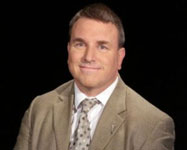 St. Pope John Paul II described Dickens’ books as “filled with love for the poor and a sense of social regeneration . . . warm with imagination and humanity”. Such true charity permeates Dickens’ novels and ultimately drives the characters either to choose regeneration or risk disintegration. In Great Expectations, Pip — symbolic of the pilgrim convert — gains both improved fortunes and a growth in wisdom, but as he acquires the latter, he must relinquish the former — ending with a wealth of profound goodness, not of worldly goods.
St. Pope John Paul II described Dickens’ books as “filled with love for the poor and a sense of social regeneration . . . warm with imagination and humanity”. Such true charity permeates Dickens’ novels and ultimately drives the characters either to choose regeneration or risk disintegration. In Great Expectations, Pip — symbolic of the pilgrim convert — gains both improved fortunes and a growth in wisdom, but as he acquires the latter, he must relinquish the former — ending with a wealth of profound goodness, not of worldly goods.
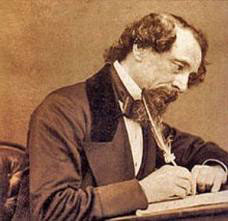 That the Dickensian message was a Christian one is unmistakable. Reminiscent of an Augustinian model, one of reflection, conversion, and moral improvement, Pip undergoes an internal change that manifests itself in his profound contrition for his earlier deeds and his equally profound resolution to make amends. As we travel with Pip, we find that Dickens leads us to an acceptance of worldly limitations and an anticipation of final salvation.
That the Dickensian message was a Christian one is unmistakable. Reminiscent of an Augustinian model, one of reflection, conversion, and moral improvement, Pip undergoes an internal change that manifests itself in his profound contrition for his earlier deeds and his equally profound resolution to make amends. As we travel with Pip, we find that Dickens leads us to an acceptance of worldly limitations and an anticipation of final salvation.
[powerpress]
 Based on the Ignatius Critical Edition, this series examines, from the Judeo-Christian perspective, the life,the times, and influence of authors of great works in literature .
Based on the Ignatius Critical Edition, this series examines, from the Judeo-Christian perspective, the life,the times, and influence of authors of great works in literature .
Joseph Pearce is currently the Writer-in-Residence and Visiting Fellow at Thomas More College of Liberal Arts in Merrimack, New Hampshire. He is also Visiting Scholar at Mount Royal Academy in Sunapee, New Hampshire. He is also Visiting Scholar at Mount Royal Academy in Sunapee, New Hampshire. He is co-editor of the Saint Austin Review (or StAR), an international review of Christian culture, literature, and ideas published in England (Family Publications) and the United States (Sapientia Press). He is also the author of many books, including literary biographies of Solzhenitsyn, J. R. R. Tolkien, C. S. Lewis, G. K. Chesterton, and Oscar Wilde.
To learn more about the authors and titles available in the Ignatius Critical Editions
Tags: ave maria university, catholic, catholic podcast, catholic prayer, cathollc spirituality, charles dickens, contrition, conversion, critical edition, ignatius press critical editions, joseph pearce, literary biographies, love, pope john paul, reflection
This entry was posted on Tuesday, November 25th, 2014 at 4:20 pm
You can follow any responses to this entry through the RSS 2.0 feed.
 Episode 12 “What am I to do?†The Discernment of God’s Will in Everyday Decisions w/Fr. Timothy Gallagher.
Episode 12 “What am I to do?†The Discernment of God’s Will in Everyday Decisions w/Fr. Timothy Gallagher.
In this episode with Fr. Gallagher, Â the series concludes with an instruction on the Third Mode and summary overview of “Discerning the Will of God”.
For other episodes in the series visit The Discerning Hearts “Discerning the Will of God†page
Father Timothy M. Gallagher, O.M.V., was ordained in 1979 as a member of the Oblates of the Virgin Mary, a religious community dedicated to retreats and spiritual formation according to the Spiritual Exercises of St. Ignatius. Â Fr. Gallagher is featured on the EWTN series “Living the Discerning Life: Â The Spiritual Teachings of St. Ignatius of Loyola”.
For more information on how to obtain copies of Fr. Gallaghers’s various books and audio which are available for purchase, please visit  his  website:   frtimothygallagher.org
For the other episodes in this series check out Fr. Timothy Gallagher’s “Discerning Hearts†page
This entry was posted on Monday, November 24th, 2014 at 12:23 pm
You can follow any responses to this entry through the RSS 2.0 feed.
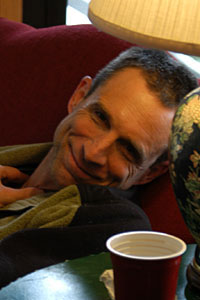 Episode 12- G. K. Chesterton
Episode 12- G. K. Chesterton
[powerpress]
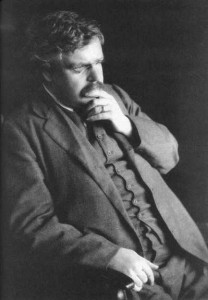 In this episode Dr. Reno discusses G. K. Chesterton his life and times, as well as his vigorous, fun, witty engagement with secular critics of Christianity which still resonate so well today.
In this episode Dr. Reno discusses G. K. Chesterton his life and times, as well as his vigorous, fun, witty engagement with secular critics of Christianity which still resonate so well today.
 Read Chesterton’s “Orthodoxy” here
“Christian Apologetics with Dr. R. R. Reno” explores numerous facets of faith and reason in the life of the Church and the world. Grounded on the work of giants, such as St. Thomas Aquinas, St. Bonaventure, Blessed John Newman, Â Blessed John Paul II, G. K. Chesterton, Blaise Pascal and Stephen Barr, Dr. Reno helps us to open our minds to make the journey to our hearts.
R. R. Reno is the editor at First Things: A Journal of Religion, Culture, and Public Life, and Professor of Theology, currently on leave from Creighton University. His theological work has been published in many academic journals. Essays and opinion pieces on religion, public life, contemporary culture, and current events have appeared in Commentary, and the Washington Post. In Fighting the Noonday Devil Reno suggests that putting ourselves at the disposal of what is real is what trains us for true piety. His other recent books include Genesis: Brazos Theological Commentary on the Bible and Sanctified Vision: An Introduction to Early Christian Interpretation of the Bible.
This entry was posted on Monday, November 24th, 2014 at 12:16 pm
You can follow any responses to this entry through the RSS 2.0 feed.
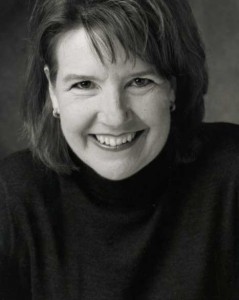 Episode 23 – Seeking Truth with Sharon Doran -Multiplication of the Loaves (PART 1)
Episode 23 – Seeking Truth with Sharon Doran -Multiplication of the Loaves (PART 1)
[powerpress]
Episode 23Â –
The Multiplication of the Loaves  (part 1)
Multiplication of the Loaves
(Mt 14,15; Mk 6,8; Lk 9; Jn 6)
“Looking up to heaven, he said the blessing, broke the loaves, and gave them to his disciples to set before the people” (Mk 6:41).
Other than the resurrection of Jesus, the multiplication of the loaves is the only miracle described in all four Gospels.
The importance of this miracle cannot be overstated.
Sharon illuminates the importance of this miracle within the big picture of God’s plan of salvation.
The multiplication of the loaves is a hinge between the Old and New Covenants.
It connects Passover with the Heavenly Feast of the Lamb.
It connects the daily gift of manna in the desert with the never-ending gift of Eucharist.
It connects the Bread of the Presence from the old temple with the Bread of Life found in Jesus, the new temple.
Sharon Doran serves as the teaching director of “Seeking Truth.†An experienced Bible Study teacher, Sharon has a passion for scripture that will motivate and challenge you to immerse yourself in God’s Word and apply His message to your every day life.
 “Seeking Truth†is an in depth Catholic Bible Study, commissioned by the Archdiocese of Omaha in response to John Paul II’s call to the New Evangelization as well as Pope Benedict XVI’s exhortation for all Catholics to study scripture. To learn more go to:www.seekingtruth.net
“Seeking Truth†is an in depth Catholic Bible Study, commissioned by the Archdiocese of Omaha in response to John Paul II’s call to the New Evangelization as well as Pope Benedict XVI’s exhortation for all Catholics to study scripture. To learn more go to:www.seekingtruth.net
Tags: Multiplication of the Loaves
This entry was posted on Monday, November 24th, 2014 at 12:15 pm
You can follow any responses to this entry through the RSS 2.0 feed.
The Sunday, Sunday, Sunday Podcast is a reflection on the upcoming Sunday Mass readings presented by LifeTeen.com and hosted by Mark Hart.
Sunday Readings from the USCCB
Reading 1 Â WIS 3:1-9
Responsorial Psalm EZ 34:11-12, 15-17
Reading 2 Â 1 COR 15:20-26, 28
Gospel MT 25:31-46
Jesus said to his disciples:
“When the Son of Man comes in his glory,
and all the angels with him,
he will sit upon his glorious throne,
and all the nations will be assembled before him.
And he will separate them one from another,
as a shepherd separates the sheep from the goats.
He will place the sheep on his right and the goats on his left.
Then the king will say to those on his right,
‘Come, you who are blessed by my Father.
Inherit the kingdom prepared for you from the foundation of the world.
For I was hungry and you gave me food,
I was thirsty and you gave me drink,
a stranger and you welcomed me,
naked and you clothed me,
ill and you cared for me,
in prison and you visited me.’
Then the righteous will answer him and say,
‘Lord, when did we see you hungry and feed you,
or thirsty and give you drink?
When did we see you a stranger and welcome you,
or naked and clothe you?
When did we see you ill or in prison, and visit you?’
And the king will say to them in reply,
‘Amen, I say to you, whatever you did
for one of the least brothers of mine, you did for me.’
Then he will say to those on his left,
‘Depart from me, you accursed,
into the eternal fire prepared for the devil and his angels.
For I was hungry and you gave me no food,
I was thirsty and you gave me no drink,
a stranger and you gave me no welcome,
naked and you gave me no clothing,
ill and in prison, and you did not care for me.’
Then they will answer and say,
‘Lord, when did we see you hungry or thirsty
or a stranger or naked or ill or in prison,
and not minister to your needs?’
He will answer them, ‘Amen, I say to you,
what you did not do for one of these least ones,
you did not do for me.’
And these will go off to eternal punishment,
but the righteous to eternal life.”
Lectionary for Mass for Use in the Dioceses of the United States, second typical edition, Copyright © 2001, 1998, 1997, 1986, 1970 Confraternity of Christian Doctrine;
Tags: christ the king, gospel of matthew, lifeteen
This entry was posted on Sunday, November 23rd, 2014 at 11:08 am
You can follow any responses to this entry through the RSS 2.0 feed.
[powerpress] Msgr. Esseff shares a recent encounter with a couple he met while traveling home after time with family. Â Tom and Mary shared their important encounters with God over the course of their 36 years of marriage. Â Each story speaks of our times and how relevant it is for our lives to allow Christ to be King of our hearts…that is how He will reign in this world. Â Msgr. Esseff then reflects on how God answers prayers and why we say “Your will be done”.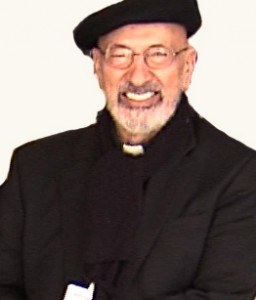
Msgr. John A. Esseff is a Roman Catholic priest in the Diocese of Scranton. He was ordained on May 30th 1953, by the late Bishop William J. Hafey, D.D. at St. Peter’s Cathedral in Scranton, PA. Msgr. Esseff served a retreat director and confessor to Blessed Mother Teresa.   He continues to offer direction and retreats for the sisters of the missionaries of charity around the world. Msgr. Esseff encountered St.  Padre Pio,  who would become a spiritual father to him. He has lived in areas around the world,  serving  in the Pontifical missions, a Catholic organization established by Bl. Pope John Paul II to bring the Good News to the world especially to the poor. Msgr. Esseff assisted the founders of the Institute for Priestly Formation and continues to serve as a spiritual director for the Institute. He continues to  serve as a retreat leader and director to bishops, priests and sisters and seminarians and other religious leaders around the world.  Â
To obtain a copy of Msgr. Esseff’s book byvisiting here
Be sure to visit Msgr. Esseff’s website “Building a Kingdom of  Love”
Tags: Good News, John Esseff, PA, retreat
This entry was posted on Sunday, November 23rd, 2014 at 8:21 am
You can follow any responses to this entry through the RSS 2.0 feed.
Episode 11– A Century of Cataclysms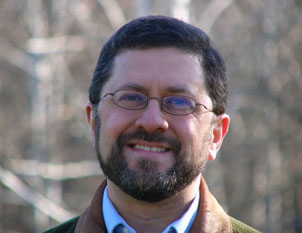
The Resilient Church with Mike Aquilina, offers a fascinating look at the trials and triumphs of the Catholic Church over the past two thousand years. Fast-paced sketches of critical periods in church history give readers perspective on the challenges faced by the church today. Mike Aquilina does not shrink from the realities of the past, including badly behaved leaders and those who betrayed the Lord. Yet he also leaves us all with well-founded hope for the future: God remains faithful in every circumstance and fulfills his promise to remain with his church always. Hosted by Kris McGregor
Also visit Mike’s “Discerning Hearts†page for more audio downloads and information!
Tags: catholic, catholic podcast, catholic prayer, cathollc spirituality
This entry was posted on Thursday, November 20th, 2014 at 4:58 pm
You can follow any responses to this entry through the RSS 2.0 feed.
Episode 31- The Holy Rule of St. Benedict: A Spiritual Path for Today’s World with Fr. Mauritius Wilde O.S.B.,  PhD.
PhD.
“The Life of St. Benedict pt 4”
We continue our conversation on the life of St. Benedict by using the biography penned by St. Gregory the Great. This episode St. Benedict is visited a priest on Easter Sunday morning in the cave and is called from his seclusion.
[powerpress]
From the Life of Our Most Holy Father St. Benedict by St. Gregory the Great:

 CHAPTER I.
Now when it pleased Almighty God that Romanus should rest from his labours, and that the life of Benedict should be manifest to the world for an example to all men, that the candle set upon a candlestick might shine and give light to the whole Church of God, our Lord vouchsafed to appear to a certain Priest living far off, who had make ready his dinner for Easter Day, saying to him: “Thou hast prepared good cheer for thyself, and My servant in such a place is famished for hunger.†Who presently rose up, and on the solemn day of Easter went towards the place with such meat as he had provided for himself, where seeking the man of God, amongst craggy rocks, winding valleys and hollow pits he found him hid in a cave. Then after prayers, and blessing the Almighty Lord, they sat down, and after some spiritual discourse the Priest said: “Rise, and let us take our refection, for this is Easter Day.†To whom the man of God answered: “I know it is Easter, because I have found so much favour as to see thee.†(For not having a long time conversed with men, he did not know it was Easter Day.) The good Priest did therefore again affirm it, saying: “Truly this is the day of our Lord’s Resurrection, and therefore it is not fit that you should keep abstinence, and for this cause I am sent that we may eat together that which Almighty God hath bestowed on us.†Whereupon blessing God, they fell to their meat. Their discourse and dinner ended, the Priest returned to his Church.
 For more information about the ministry of the the Missionary Benedictines of Christ the King Priory in Schuyler, Nebraska visit here:
For more information about the ministry of the the Missionary Benedictines of Christ the King Priory in Schuyler, Nebraska visit here:
Tags: catholic, catholic podcast, catholic prayer, cathollc spirituality
This entry was posted on Tuesday, November 18th, 2014 at 12:22 pm
You can follow any responses to this entry through the RSS 2.0 feed.
Episode 3- The School of Prayer: Reflections on the teachings of Pope Benedict XVI –   Abraham the great Patriarch who prays in intercession for Sodom and Gomorrah.  The mystery of intercessory prayer and God’s great mercy.  When we persist in prayer, like Abraham, the more we come to know God and trust in His love for us.  How sin corrupts our capacity to receive God’s movement of protection and love.  How the sacrifice of Christ opens the door to the mystery.  If we can learn how to pray, then we learn how to be loved.  How do we pray for others?
Abraham the great Patriarch who prays in intercession for Sodom and Gomorrah.  The mystery of intercessory prayer and God’s great mercy.  When we persist in prayer, like Abraham, the more we come to know God and trust in His love for us.  How sin corrupts our capacity to receive God’s movement of protection and love.  How the sacrifice of Christ opens the door to the mystery.  If we can learn how to pray, then we learn how to be loved.  How do we pray for others?
[powerpress]
Deacon James Keating, PhD, the director of Theological Formation for the Institute for Priestly Formation, located at Creighton University, in Omaha.
From  Pope Benedict’s 3 audience on prayer:
This is the power of prayer. For through intercession, the prayer to God for the salvation of others, the desire for salvation which God nourishes for sinful man is demonstrated and expressed. Evil, in fact, cannot be accepted, it must be identified and destroyed through punishment: The destruction of Sodom had exactly this function.
For more information on the “Institute of Priestly Formation†and for other material available by Deacon Keating, just click here
Don’t forget to pickup a copy of “Communion with Christ†, it is one of the best audio sets on prayer…ever!
Check out Deacon Keating’s “Discerning Heart†page
Tags: catholic, catholic podcast, catholic prayer, cathollc spirituality
This entry was posted on Tuesday, November 18th, 2014 at 11:12 am
You can follow any responses to this entry through the RSS 2.0 feed.
[powerpress]
Dr. Matthew Bunson discusses the life, times and teachings of St. Albert the Great
Born: 1193, Lauingen, Germany
Died: November 15, 1280, Cologne, Germany
Education: University of Padua
From Vatican.va, an excerpt from the teachings of Pope Benedict XVIÂ
From the General Audience on St. Albert the Great
One of the great masters of medieval theology is St Albert the Great. The title “Great”, (Magnus), with which he has passed into history indicates the vastness and depth of his teaching, which he combined with holiness of life. However, his contemporaries did not hesitate to attribute to him titles of excellence even then. One of his disciples, Ulric of Strasbourg, called him the “wonder and miracle of our epoch”.
He was born in Germany at the beginning of the 13th century. When he was still young he went to Italy, to Padua, the seat of one of the most famous medieval universities. He devoted himself to the study of the so-called “liberal arts”: grammar, rhetoric, dialectics, arithmetic, geometry, astronomy and music, that is, to culture in general, demonstrating that characteristic interest in the natural sciences which was soon to become the favourite field for his specialization. During his stay in Padua he attended the Church of the Dominicans, whom he then joined with the profession of the religious vows. Hagiographic sources suggest that Albert came to this decision gradually. His intense relationship with God, the Dominican Friars’ example of holiness, hearing the sermons of Blessed Jordan of Saxony, St Dominic’s successor at the Master General of the Order of Preachers, were the decisive factors that helped him to overcome every doubt and even
to surmount his family’s resistence. God often speaks to us in the years of our youth and points out to us the project of our life. As it was for Albert, so also for all of us, personal prayer, nourished by the Lord’s word, frequent reception of the Sacraments and the spiritual guidance of enlightened people are the means to discover and follow God’s voice. He received the religious habit from Bl. Jordan of Saxony.
After his ordination to the priesthood, his superiors sent him to teach at various theological study centres annexed to the convents of the Dominican Fathers. His brilliant intellectual qualities enabled him to perfect his theological studies at the most famous university in that period, the University of Paris. From that time on St Albert began his extraordinary activity as a writer that he was to pursue throughout his life.
Prestigious tasks were assigned to him. In 1248 he was charged with opening a theological studium at Cologne, one of the most important regional capitals of Germany, where he lived at different times and which became his adopted city. He brought with him from Paris an exceptional student, Thomas Aquinas. The sole merit of having been St Thomas’ teacher would suffice to elicit profound admiration for St Albert. A relationship of mutual esteem and friendship developed between these two great theologians, human attitudes that were very helpful in the development of this branch of knowlege. In 1254, Albert was elected Provincial of the Dominican Fathers’ “Provincia Teutoniae” Teutonic Province which included communities scattered over a vast territory in Central and Northern Europe. He distinguished himself for the zeal with which he exercised this ministry, visiting the communities and constantly recalling his confreres to fidelity, to the teaching and example of St Dominic.
His gifts did not escape the attention of the Pope of that time, Alexander iv, who wanted Albert with him for a certain time at Anagni where the Popes went frequently in Rome itself and at Viterbo, in order to avail himself of Albert’s theological advice. The same Supreme Pontiff appointed Albert Bishop of Regensburg, a large and celebrated diocese, but which was going through a difficult period. From 1260 to 1262, Albert exercised this ministry with unflagging dedication, succeeding in restoring peace and harmony to the city, in reorganizing parishes and convents and in giving a new impetus to charitable activities.
In the year 1263-1264, Albert preached in Germany and in Bohemia, at the request of Pope Urban iv. He later returned to Cologne and took up his role as lecturer, scholar and writer. As a man of prayer, science and charity, his authoritative intervention in various events of the Church and of the society of the time were acclaimed: above all, he was a man of reconciliation and peace in Cologne, where the Archbishop had run seriously foul of the city’s institutions; he did his utmost during the Second Council of Lyons, in 1274, summoned by Pope Gregory X, to encourage union between the Latin and Greek Churches after the separation of the great schism with the East in 1054. He also explained the thought of Thomas Aquinas which had been the subject of objections and even quite unjustified condemnations.
He died in his cell at the convent of the Holy Cross, Cologne, in 1280, and was very soon venerated by his confreres. The Church proposed him for the worship of the faithful with his beatification in 1622 and with his canonization in 1931, when Pope Pius XI proclaimed him Doctor of the Church. This was certainly an appropriate recognition of this great man of God and outstanding scholar, not only of the truths of the faith but of a great many other branches of knowledge; indeed, with a glance at the titles of his very numerous works, we realize that there was something miraculous about his culture and that his encyclopedic interests led him not only to concern himself with philosophy and theology, like other contemporaries of his, but also with every other discipline then known, from physics to chemistry, from astronomy to minerology, from botany to zoology. For this reason Pope Pius XII named him Patron of enthusiasts of the natural sciences and also called him “Doctor universalis” precisely because of the vastness of his interests and knowledge.
For more visit Vatican.va
For more from Dr. Matthew Bunson check out his Discerning Hearts page
Dr. Matthew Bunson, Senior Fellow of the St. Paul Center for Biblical Theology, is one of the United States’ leading authorities on the papacy and the Church.
His books include: The Encyclopedia of Catholic History; The Encyclopedia of Saints; Papal Wisdom; All Shall Be Well; Encyclopedia of the Roman Empire; and The Angelic Doctor: The Life and World of St. Thomas Aquinas; The Pope Encyclopedia; We Have a Pope! Benedict XVI, the first Catholic biography of the Holy Father in the English language; the Encyclopedia of U.S. Catholic History; Pope Francis. His also the editor of OSV’s “The Catholic Answer” magazine.
Tags: catholic, catholic podcast, catholic prayer, cathollc spirituality
This entry was posted on Tuesday, November 18th, 2014 at 11:02 am
You can follow any responses to this entry through the RSS 2.0 feed.
 BKL 79 ” Building a Kingdom of Love” – “Are you the lazy servant?”  Msgr. Esseff helps us to see that the talents equals God’s love.  Knowing this, have you been the lazy servant?
BKL 79 ” Building a Kingdom of Love” – “Are you the lazy servant?”  Msgr. Esseff helps us to see that the talents equals God’s love.  Knowing this, have you been the lazy servant?
[powerpress]
Gospel MT 25:14-30
Jesus told his disciples this parable:
“A man going on a journey
called in his servants and entrusted his possessions to them.
To one he gave five talents; to another, two; to a third, one–
to each according to his ability.
Then he went away.
Immediately the one who received five talents went and traded with them,
and made another five.
Likewise, the one who received two made another two.
But the man who received one went off and dug a hole in the ground
and buried his master’s money.
After a long time
the master of those servants came back
and settled accounts with them.
The one who had received five talents came forward
bringing the additional five.
He said, ‘Master, you gave me five talents.
See, I have made five more.’
His master said to him, ‘Well done, my good and faithful servant.
Since you were faithful in small matters,
I will give you great responsibilities.
Come, share your master’s joy.’
Then the one who had received two talents also came forward and said,
‘Master, you gave me two talents.
See, I have made two more.’
His master said to him, ‘Well done, my good and faithful servant.
Since you were faithful in small matters,
I will give you great responsibilities.
Come, share your master’s joy.’
Then the one who had received the one talent came forward and said,
‘Master, I knew you were a demanding person,
harvesting where you did not plant
and gathering where you did not scatter;
so out of fear I went off and buried your talent in the ground.
Here it is back.’
His master said to him in reply, ‘You wicked, lazy servant!
So you knew that I harvest where I did not plant
and gather where I did not scatter?
Should you not then have put my money in the bank
so that I could have got it back with interest on my return?
Now then! Take the talent from him and give it to the one with ten.
For to everyone who has,
more will be given and he will grow rich;
but from the one who has not,
even what he has will be taken away.
And throw this useless servant into the darkness outside,
where there will be wailing and grinding of teeth.'”
Msgr. John A. Esseff is a Roman Catholic priest in the Diocese of Scranton. He was ordained on May 30th 1953, by the late Bishop William J. Hafey, D.D. at St. Peter’s Cathedral in Scranton, PA. Msgr. Esseff served a retreat director and confessor to Blessed Mother Teresa. He continues to offer direction and retreats for the sisters of the missionaries of charity around the world. Msgr. Esseff encountered St. Padre Pio, who would become a spiritual father to him. He has lived in areas around the world, serving in the Pontifical missions, a Catholic organization established by Bl. Pope John Paul II to bring the Good News to the world especially to the poor. Msgr. Esseff assisted the founders of the Institute for Priestly Formation and continues to serve as a spiritual director for the Institute. He continues to serve as a retreat leader and director to bishops, priests and sisters and seminarians and other religious leaders around the world.   To obtain a copy of Msgr. Esseff’s book by visiting here  Be sure to visit Msgr. Esseff’s website “Building a Kingdom of Love“
 To obtain a copy of Msgr. Esseff’s book by visiting here  Be sure to visit Msgr. Esseff’s website “Building a Kingdom of Love“
Tags: catholic, catholic podcast, catholic prayer, cathollc spirituality
This entry was posted on Monday, November 17th, 2014 at 2:58 pm
You can follow any responses to this entry through the RSS 2.0 feed.

